IRAQ IN
TURMOIL
IRAQ IN
TURMOIL
HISTORICAL PERSPECTIVES OF DR. ALI AL-WARDI,
FROM THE OTTOMAN EMPIRE TO KING FEISAL
YOUSSEF H. ABOUL-ENEIN
NAVAL INSTITUTE PRESS
Annapolis, Maryland
Disclaimer: The statements of fact, opinion, or analysis expressed in this book are those of the author and do not reflect the official policy or position of the Department of Defense, the U.S. Government, or the U.S. Army.
Naval Institute Press
291 Wood Road
Annapolis, MD 21402
2012 by Youssef H. Aboul-Enein
All rights reserved. No part of this book may be reproduced or utilized in any form or by any means, electronic or mechanical, including photocopying and recording, or by any information storage and retrieval system, without permission in writing from the publisher.
Library of Congress Cataloging-in-Publication Data
Al-Wardi, Ali.
Iraq in turmoil : historical perspectives of Dr. Ali al-Wardi, from the Ottoman Empire to King Feisal / [compiled by] Youssef H. Aboul-Enein.
p. cm.
Includes index.
ISBN 978-1-61251-100-9 (e-book) 1. IraqHistory1534-1921. 2. TurksIraqHistory. I. Aboul-Enein, Youssef H. II. Title.
DS77.A38 2012
956.703dc23
2011042438
 This paper meets the requirements of ANSI/NISO z39.48-1992 (Permanence of Paper).
This paper meets the requirements of ANSI/NISO z39.48-1992 (Permanence of Paper).
20 19 18 17 16 15 14 13 12 9 8 7 6 5 4 3 2 1
First printing
THE DEDICATION OF THIS BOOK IS SIMPLE:

To Arlington Cemetery Section 60,
to the Soldiers, Sailors, Airmen, and Marines, and
to our families who enable us to defend the United States.

CONTENTS
The devil can cite Scripture for his purpose.
William Shakespeare, The Merchant of Venice
Recent events in Egypt, Tunisia, and Bahrain demand that Americas military have a deeper understanding of the Middle East. This cannot be accomplished without delving into seminal texts written in the Arabic language by Arabs. The Naval Institute Press and the United States Army journal, Armor, are pleased to offer a unique collection of essays highlighting Iraqs social, political, and military history from a purely Iraqi perspective. Dr. Ali al-Wardi (19131995, hereafter referred to as al-Wardi) attended the American University of Beirut in 1943 and then traveled to the United States to attain his masters and doctorate degrees in sociology at the University of Texas in 1948 and 1950, respectively. He returned to Iraq and spent his career teaching, but his main legacy is an eight-volume work in Arabic that was published from late 1969 to early 1976. His research is reputed to have begun as early as 1951, and represents more than two decades of work that highlights the history of Iraq from the arrival of the Ottomans to the monarchy of King Feisal I in 1925, and extends into the founding of modern Saudi Arabia in 1932, as it relates to the Hashemite Iraqi Kingdom.
Although it is eight books of four hundred pages each, it is best described as six volumes published in eight books. Volumes 5 and 6 of the collection are in two books. For the purpose of this study, I will refer to the collection as being made up of eight volumes. These volumes are titled Lamahat Ijtimaiya min Tarikh al-Iraq al-Hadith (Social Glimpses of Iraqi Modern History), and initially were published by Baghdads Al-Irshad Publishers. It would go through a second printing in 1991 by Kufan Printers in London, and then be reissued a third time in 2007 by Alwarrak Publishing of London. Portions of al-Wardis work were published in German in 1972, with parts of English abridged translations in 2008 by Edwin Mellen Press, Lewiston, New York, and in 2010 by Lambert Academic Publishing in Saarbrucken, Germany.
This Naval Institute volume provides an abridged translation with commentary of the most significant aspects of the work for an American military audience, coupled with analysis of all eight books. There is a special emphasis on areas of interest to the American professional military reader. Of note, al-Wardis entire volumes, although outdated, are so influential among Iraqis they can be downloaded for free in its original Arabic version from several websites such as http://www.aliraqi.org/, a site dedicated to Iraqi history and culture. Despite passing away in 1995, this so-called father of Iraqi sociology has his own Facebook site (http://www.facebook.com/pages/Ali-Al-Wardi/101952213176352), in which thousands of Iraqis and many other Arabs meet to read and discuss his work.
IRAQI INSURGENT USES AL-WARDIS VOLUMES
It is an extraordinary work, and I first was drawn to it by a serving U.S. Army officer in Iraq in 2007, who was interacting with a uniquely learned detainee. This detainee used Iraqi history to incite the population against coalition forces. Apparently, al-Wardis volumes are among the reading selections offered to Iraqi prisoners. The detainee mentioned these volumes as a required source to exploit the imagery of Iraqs history with the Shiites, Sunnis, Kurds, Wahhabis, and Persians to their advantage. Upon getting this tip and a few pages of the volume, I acquired a set of al-Wardis volumes from the Library of Congress Middle East Reading Room and set about reading the materials. What I uncovered was a treasure trove of historical information vital to the understanding of Iraq and its relationship with Arabia, Syria, Egypt, and Iran, as well as to an understanding of the internal relationship between the tribes and the great regional powers, in particular the Ottomans and the Persians. I took it upon myself to highlight this important Arabic work to Americas military readers; Ms. Charlotte Bourgeois from the U.S. Army journal Armor was convinced of the value of this material in educating our forces in the human terrain of Iraq. Pages reveal not only the history of Iraq, but also of Persia, Shiite Islam, Sunni Islam, Ottoman Turkey, and much more. The result was an expos, not a verbatim translation of al-Wardis work, that was published in eleven essays by the U.S. Army journal Armor between 2009 and late 2010. It represents hours of translation, analysis, and synthesis. Also, al-Wardis book was designed for an Arab audience, and so many concepts that are inherent in the consciousness of the region needed to be explained to a Western reader. There are no endnotes or footnotes, as the objective is to bring al-Wardis work to a wider American military readership. It is also an attempt to highlight the importance of teaching Americas future policy makers and military leaders directly from Arabic sources. Although al-Wardis work is a sociopolitical history, I focused on aspects of his work that military personnel would find of interest, from battles and tribal insurrections to the powers that swept through Iraq and their methods of managing the regions complex tribes and sects.
Several people who deployed to Iraq have used this Armor series I published before traveling to the region. Often, they asked me two questions: When is the next series coming out? and, Will all essays be collected in a single volume? I was honored that during the process of writing and publishing, Naval Institute Press took an interest in this series, and that, in conjunction with Armor, the Press sought to collect all eleven of these essays on al-Wardis modern history of Iraq into a single volume. The idea was to make all eleven essays accessible to Americans with an interest in or who are deploying to Iraq. Al-Wardi offers a historical narrative of how the Ottomans, Persians, British, and the newly created Iraqi monarchy have dealt with tribes, religious groups, and insurgencies. His work is an invaluable resource that, until the publication of the essays in
Next page

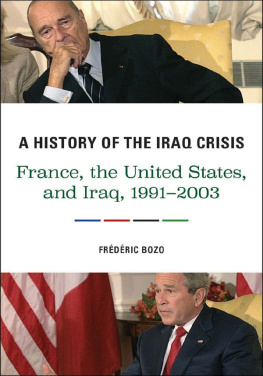
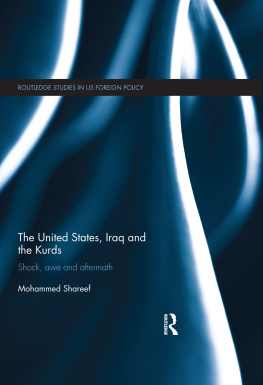
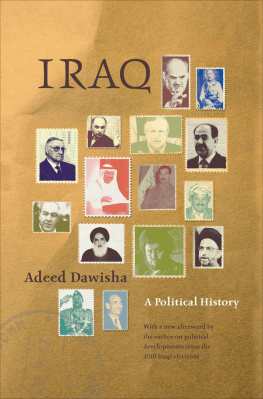
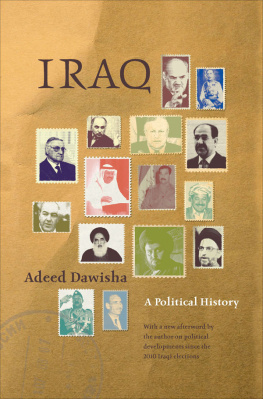
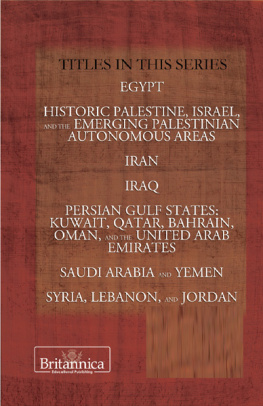

 This paper meets the requirements of ANSI/NISO z39.48-1992 (Permanence of Paper).
This paper meets the requirements of ANSI/NISO z39.48-1992 (Permanence of Paper).
